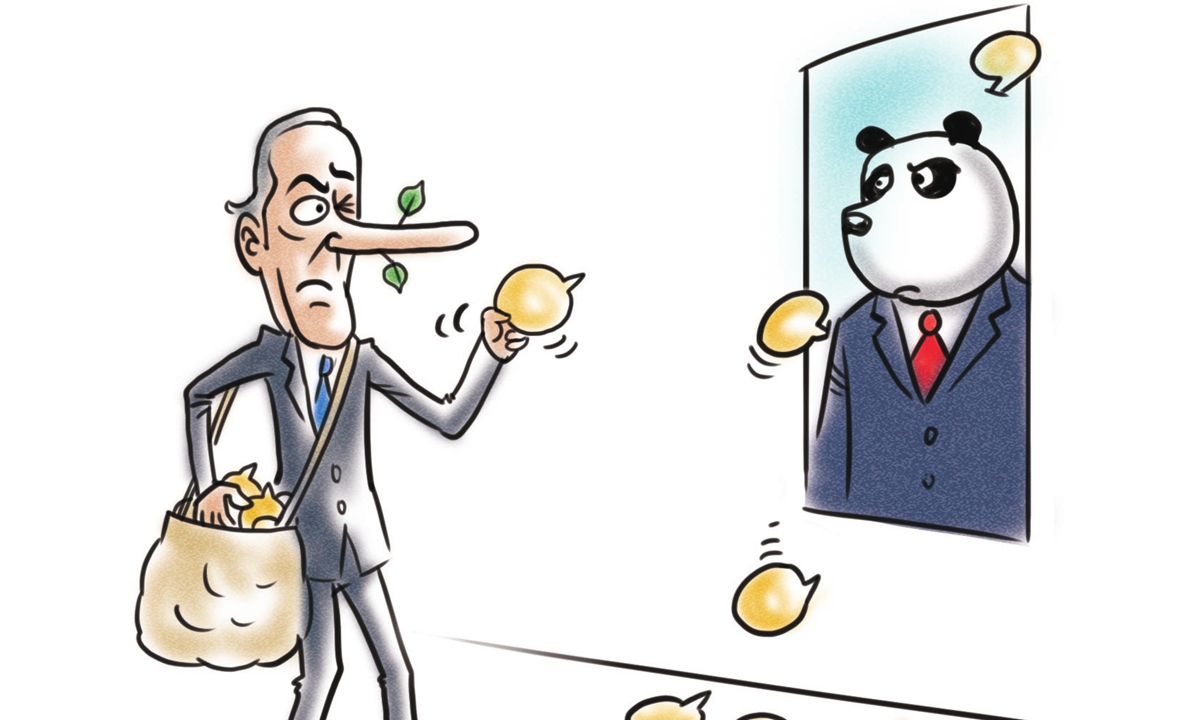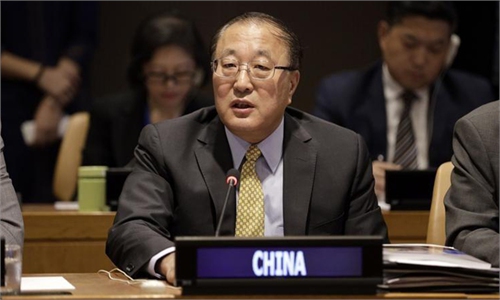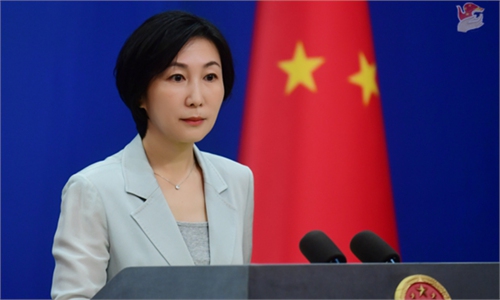
Illustration: Chen Xia/GT
There is a joke in the West that goes like this:"Are you ignorant or arrogant?"
"I do not know, and I do not care."
The point is that people who want to improve themselves have to overcome an important hurdle: They must find relevant information so that they are no longer ignorant, or they have to admit they have been lacking knowledge but, due to arrogance, refuse to do anything about it.
However funny the joke might be, there is nothing humorous about Western citizens, more specifically the people of the US, consistently misunderstanding China and its foreign policy aspirations. Misreading China's intentions, goals and strategies serves only to put further strain on the China-US bilateral relationship.
One recent essay on the Australian news organization the Conversation examining the West's misconceptions about China outlines some of these myths. The author notes: "Chinese military leader and strategist Sun Tzu once emphasized the importance of knowing one's enemy as well as oneself; these words are especially pertinent in understanding China today."
Before we start exploring five particular myths about China and its foreign policy aims, let's begin with identifying China's Five Principles of Peaceful Coexistence: mutual respect for sovereignty and territorial integrity, mutual non-aggression, non- interference in each other's internal affairs, equality and mutual benefit, and peaceful coexistence, or in short: You develop as you wish, and I develop as I wish. We respect and work with each other. When you win, I win.
Yet, we know that Washington, and its partners, twist that message so that it reads something like this: "China really wants you to develop as it wants. It does not respect you. It wants to be the only winner." The term "fake news" might apply here; even if it does not, we must admit that the US allows myths to sustain its negative rhetoric.
With that in mind, let's consider what America gets wrong, and why those errors derail the necessary understanding one must have in order to grasp why China acts as it does.
The first identified myth: China wants to take over the world. If you read reports from one US think tank after another, you will be quickly convinced that "domination" and "rewriting the rules of the global order" are at the top of the agenda for Chinese politicians. Yet, as one author has noted, if China were to truly dream about being a sole superpower, it would have to expand its military funding and presence around the world to a level that would erode the domestic economy. China cannot continue to bolster its middle class and find ways to better care for its aging population if it is focusing primarily on military hardware and software. As a result, to date, China has one support base in Africa, and there are none being built; remember that the US has at least 750.
The second myth: China seeks to support and deal with only authoritarian regimes. In the minds of Americans, the recent strengthening of the China-Russia partnership provides all the evidence of Chinese international intentions. But if this were the case, how is it that the world's leading democratic/capitalist nations are China's strongest economic partners? Remember the financial importance of both sides winning when you next read about China's admiration only for non-democratic nations.
The third myth: China refuses to endorse internationally respected organizations. This ludicrous idea that China would like to undermine the United Nations and other global bodies makes zero sense. China is deeply ingrained in the global system, and it wants to be. To take just one example, China strongly endorses (and benefits from) the UN's Sustainable Development Cooperation Framework, which in 2022 alone saw improvements in China's overall prosperity and improvement in the lives of Chinese women.
The fourth myth: China's history affirms global ambitions. It is far more accurate to say that when China has been at its strongest, it has always sought to be a viable international trade partner. The Belt and Road Initiative has its roots in the past, when the Silk Road connected East with West. But at no point, either then or in the present, has China ever considered using trade as a means of securing international military power.
The fifth myth: China is using its economic strength to ensnare weak economies, especially throughout Africa and Asia. Chatham House, which would never be accused of being pro-China, smashed the idea as early as 2020 that China promotes debt-trap diplomacy, noting that any nation that enters into a trade deal with China does so voluntarily and that "China's development financing system is too fragmented" to engage in nefarious ends.
So, is ignorance or arrogance the root of America's mistaken ideas about China? Arrogance. The American people do not lack information, but they are quick to allow the prevailing narrative - built by powerful forces such as government and the military-industrial complex, both of which have vital interests in stoking disdain about China - to continue. Americans can learn more, but too many of them simply do not want to take the time.
The author is an associate professor at the Department of Communication and Organizational Leadership at Robert Morris University. opinion@globaltimes.com.cn



